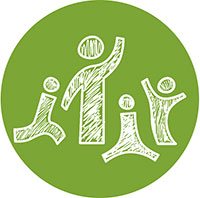Children and adolescents, in other words all people until they reach the age of majority, have independent entitlement to specific human rights and the special attention they merit is legally recognised. The Institute bases its work on this rights perspective, which includes four general principles established in the United Nations Convention on the Rights of the Child:
 The right to the child’s best interests being a primary consideration in any decision-making that affects children (Art. 3). The right to the child’s best interests being a primary consideration in any decision-making that affects children (Art. 3). |
 The right to non-discrimination (Art. 2) The right to non-discrimination (Art. 2) |
 The right to maximum development for children and adolescents (Art. 6) The right to maximum development for children and adolescents (Art. 6) |
 The right to be heard (Art. 12) The right to be heard (Art. 12) |
Reference documents
- United Nations Convention on the Rights of the Child (1989)
- Catalan Law on the Rights and Opportunities of Childhood and Adolescence (14/2010)
- Barcelona Charter of Citizenship Rights (2010)
International, state and regional commitments
- European Recommendation on Investing in Children (2013)
- The 2030 Agenda for Sustainable Development (2015)
- EU strategy on the rights of the child and the European child guarantee (2021)
- Spanish State Strategy on the Rights of Children and Adolescents (2023)
- Agenda of challenges for the updating of the Catalan Children Pact (2023)


